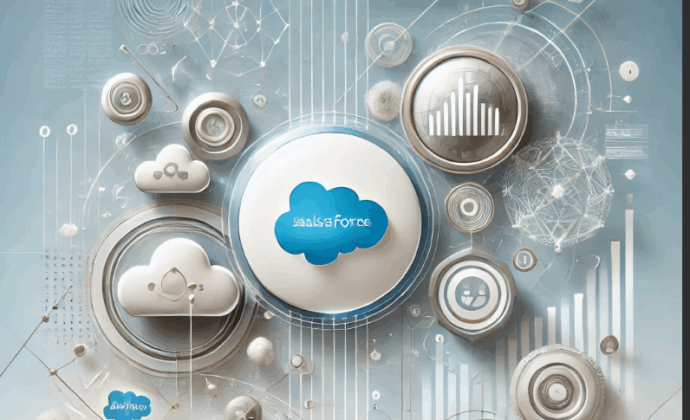
How Much Does Salesforce Agentforce Cost in 2025
Salesforce Agentforce has revolutionized CRM pricing with its conversation-based model that charges just $2 per agent conversation. This fresh approach differs from traditional CRM systems that demand hefty upfront investments.
Agentforce’s model connects costs directly to revenue-generating activities, unlike other CRM pricing structures in the market. Businesses can now find Salesforce startup pricing more available, especially when using Sales Cloud and Service Cloud Enterprise plans that start at $231 per user monthly. The market shows strong confidence in such technologies, with more than 80% of companies boosting their investment in generative AI. The launch timing of Agentforce on October 25, 2024 aligns perfectly with market trends, as 82% of organizations plan to blend autonomous agents into their operations within three years. The service remains exclusive to Salesforce customers who have Enterprise Edition or higher and requires the Foundations suite upgrade.
Let’s get into the details of Agentforce’s pricing structure, potential hidden costs, and how it stacks up against other CRM pricing options in today’s market.
What is Agentforce and how is it priced?
Salesforce Agentforce represents a transformation in agent CRM pricing. Businesses can now deploy AI agents that interact, make decisions, and take actions without human intervention. This technology builds on Einstein Copilot and adds agency capabilities. The AI can now replace or support human interactions in service, sales, and commerce functions.
Agentforce vs traditional Salesforce licensing
The traditional Salesforce model required customers to pay upfront fees as soon as the platform was set up – whatever the actual usage. Companies had to budget for Salesforce costs before they could see any real returns. The license management proved challenging, and costs kept adding up even during the initial setup phase.
The new Agentforce model changes everything by using conversation-based pricing instead of fixed licensing fees. Companies now pay only at the time AI agents participate in conversations. This creates a clear connection between costs and activities that generate value.
Understanding How Much Does Salesforce Agentforce Cost
Agentforce has a base rate of USD 2.00 per conversation with an AI agent. This usage-based pricing makes the platform available to businesses in any discipline:
- Large businesses get volume discounts that lower per-conversation costs
- Small businesses pay only for conversations they can afford, which keeps it cost-effective
- Existing Salesforce customers can start free through Salesforce Foundations
This pricing is available to Salesforce customers with Enterprise Edition or higher. The base rate stays at $2.00, but going over pre-purchased conversation limits could cost more – some contracts show overage charges of $2.50 per conversation.
Why conversation-based pricing matters
How Much Does Salesforce Agentforce Cost -Conversation-based pricing arranges costs with business outcomes and offers these advantages over traditional models:
- Lower entry barriers: Companies can test Agentforce in controlled settings without big licensing commitments
- Clearer business cases: Every interaction links to revenue or cost savings, which makes ROI measurement easier
- Predictable forecasting: Costs increase in line with usage, making budget planning simpler as your business grows
Looking at other leading agent CRM pricing structures shows that Agentforce’s model gives businesses an easier way to implement AI autonomously while managing costs. You only pay when you get value, not just for having the system.
Breaking down the real costs of Agentforce
The $2 per conversation fee for Agentforce is just the start of a complex cost structure. Several hidden costs can substantially affect your total investment as you evaluate Agentforce against other agent CRM pricing models.
Einstein Requests and their effect
Einstein Requests make up much of Agentforce’s actual cost. The AI system charges these requests during language processing, with fees calculated by word count and model type. Salesforce applies a multiplier for each API call—10x for Salesforce’s model and 7x for bring-your-own models—multiplied by the processed words (divided by 1,500 and rounded up). A long conversation with 100 exchanges could rack up 1,000-1,500 Einstein Requests, which adds $2.00-$3.00 beyond your per-conversation cost.
Data Cloud storage and processing fees
The conversation costs combine with Data Cloud expenses through:
- Storage fees for data kept in Data Cloud (separate from standard Salesforce storage)
- Data Services Credits used through ingestion, transformation, and processing
- Unstructured data processing at about 60 credits per megabyte
- Profile lookups at roughly $0.01 per profile
Salesforce Agentforce Cost Estimate
We learned that sandbox testing costs extra with Agentforce. Unlike regular Salesforce environments, sandbox activity uses credits. Companies often assume test environments come free. In spite of that, AI model interactions, data transformations, and analytics in sandboxes all add to your billing and affect your overall agent CRM pricing.
Customization and integration expenses
Adapting Agentforce to your business needs requires extra investment. External system integration needs either custom development or middleware solutions. Creating specialized workflows or AI skills involves setup costs that grow with customization complexity. Companies looking to get the most value from their Salesforce startup pricing should factor these integration expenses into total cost projections carefully.
Yes, it is essential to plan strategically around all four areas to achieve the best agent CRM pricing structure that fits your business needs.
How Agentforce pricing affects your business
Agentforce’s conversation-based pricing model represents a fundamental change in how agent CRM pricing affects your bottom line. Small businesses and startups will experience a completely new approach to AI implementation costs.
Lower entry barriers for startups
The Agentforce pricing model through Salesforce lets businesses start with minimal financial commitment. Traditional CRM systems require heavy upfront costs, but you can now run small-scale trials without major investment. Companies pay only when AI agents participate in actual conversations. Startups can explore these capabilities risk-free with 1,000 free Agentforce conversations. The usage-based model kicks in at $2 per conversation once you use up the free allocation.

Clearer ROI and cost forecasting
How Much Does Salesforce Agentforce Cost – ROI measurement becomes crystal clear with Agentforce. Revenue and cost-saving activities link directly to each conversation-driven interaction. Traditional CRM functions can’t match this straightforward approach. The business benefits are clear:
- Quick, accurate responses lead to happier customers
- Reduced staffing needs cut operational costs
- Routine task automation improves efficiency
How Much Does Salesforce Agentforce Cost interactive ROI calculator helps estimate yearly cost savings. This tool lets you forecast precisely based on real business metrics.
Costs match revenue-generating activities
The best part about Agentforce is how spending ties directly to value creation. Your costs increase linearly with usage, so investment grows with business results. Companies can focus on scaling usage that delivers measurable value.
Salesforce provides volume discounts to businesses handling many interactions. Your per-conversation costs decrease as revenue-generating AI automation expands. This smart pricing structure rewards your success instead of penalizing it.
Salesforce Agentforce Pricing
CRM pricing structures show dramatic differences between traditional agent CRM pricing models and Salesforce’s innovative Agentforce approach. Businesses need to understand these key differences to make budget-friendly decisions in 2025.
Wise Agent CRM pricing vs Agentforce
Wise Agent uses a fixed-rate model at $49 per month or $499 annually with a 15% savings. This flat fee includes lead automation, transaction management, unlimited document storage, and 24/7 support. Agentforce takes a different approach by charging nothing upfront and billing $2 per conversation. The main difference lies in cost predictability – Wise Agent provides steady monthly expenses while Agentforce costs vary based on usage. A small agency that handles 100 customer questions daily would pay $499 yearly with Wise Agent, but Agentforce costs could reach $200 per hour during peak times.
Leading Agent CRM pricing structures
CRM platforms typically follow three main pricing approaches: per-user monthly subscriptions ($10-$300 per user), tiered feature-based packages, or flat-rate structures. Salesforce’s traditional licensing costs between $25-$165 per user monthly, and LionDesk provides budget-friendly team options. Agentforce’s conversation-based model ties costs to actual customer interactions instead of seat licenses. This changes expenses from fixed overhead to variable operational costs that grow with activity.
How Agentforce stacks up for small businesses
Startups and small agencies benefit from Agentforce’s zero upfront investment and pay-as-you-go structure. Established businesses with steady client volumes might prefer predictable pricing like Wise Agent’s $32 monthly flat rate. The best choice depends on interaction patterns. Businesses with many brief conversations might save more with traditional CRMs, while those with fewer but valuable interactions could benefit from Agentforce. Companies should think about whether conversation-based pricing matches their revenue model, since each Agentforce interaction should create value beyond its $2 cost.
Salesforce Agentforce brings a fundamental change to CRM pricing. The platform uses a conversation-based approach that links costs directly to business value, unlike traditional models requiring big upfront investments. Companies looking for flexible solutions without heavy licensing fees will find this pricing strategy logical.
All the same, smart buyers should look at the complete cost picture. Your total investment could grow substantially from hidden expenses. Einstein Requests, Data Cloud storage fees, sandbox testing, and customization costs might catch businesses off guard if they only look at the advertised $2 per conversation rate.
The best approach involves calculating your likely conversation volume and including all related costs before you decide. A good CRM solution should match your budget and fit with your simplified processes and business goals. Agentforce’s
flexibility impresses many, but only you can tell if this innovative pricing model gives you the best value for How Much Does Salesforce Agentforce Cost in 2025 and beyond.
FAQs
What are the key components of a successful Salesforce marketing strategy?
A successful Salesforce marketing strategy includes defining clear goals, building a strong data foundation, designing personalized customer journeys, utilizing real-time analytics, and continuously evolving your approach over time.
How can I effectively segment my audience using Salesforce Marketing Cloud?
Salesforce Marketing Cloud allows for advanced audience segmentation based on various criteria such as purchasing behavior, communication preferences, subscriber status, geographic location, and website interactions. You can also use predictive intelligence to segment based on anticipated future behaviors.
What role does AI play in Salesforce marketing automation?
AI, particularly Salesforce’s Agentforce technology, plays a crucial role in automating campaign creation, delivering personalized content, predicting customer actions, and triggering retention strategies. It helps marketers create more efficient and targeted campaigns.
How can I measure the success of my Salesforce marketing campaigns?
You can measure success by tracking key performance indicators (KPIs) across multiple channels, using A/B testing for campaign optimization, and leveraging real-time analytics to make data-driven decisions. Salesforce provides customizable dashboards and reports to monitor these metrics effectively.
How often should I update my Salesforce marketing strategy?
Your Salesforce marketing strategy should be continuously refined based on feedback and performance data. Regular analysis periods (monthly, quarterly, yearly) are recommended, along with staying updated on new Salesforce features and tools. Encourage ongoing team training, especially in evolving AI capabilities, to keep your strategy current and effective.
